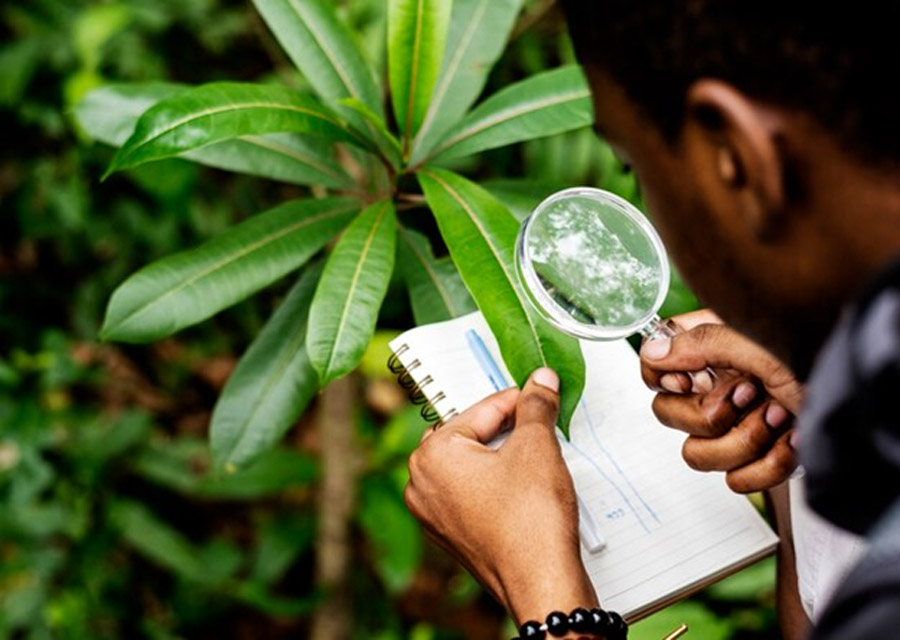
How to Educate Yourself about Plants as an Aspiring Student
Plants are the backbone of our ecosystems, providing us with oxygen, food, and countless other resources essential for life on Earth. For aspiring students, understanding plants and their role in the natural world is not only intellectually stimulating but also crucial for addressing environmental challenges and pursuing careers in fields like biology, conservation, and agriculture. In this blog, we'll explore how you can educate yourself about plants and unlock a world of knowledge and opportunities.
Understanding the Basics of Plant Biology
To fully appreciate the wonders of the plant kingdom, it's essential to grasp the fundamentals of plant biology. This includes delving into plant anatomy and physiology, learning about photosynthesis and respiration, and understanding the intricate processes of reproduction and growth cycles. Online resources, textbooks, and educational videos are excellent starting points for gaining this foundational knowledge.
Exploring Different Types of Plants
The diversity of plants is astounding, ranging from vibrant flowering plants to resilient non-flowering plants like ferns and mosses. The tundra biome, for example, is known for its extreme cold and harsh conditions. It is home to a variety of plant species that have developed remarkable strategies to survive in this challenging environment. Various plants in the tundra primarily consist of grasses, dwarf bushes, and short-season flowering herbaceous perennials. These plants have adapted to perform photosynthesis at low temperatures and low light intensities, setting them apart from autotrophs in other parts of the world. By exploring these plants and various other plant types around the world, you'll better appreciate their unique characteristics, habitats, and adaptations. Additionally, succulents, cacti, trees, and shrubs offer opportunities to study different plant forms and their specific requirements, allowing you to engage with a wide range of botanical wonders.
Getting Hands-On Experience
While theoretical knowledge is crucial, nothing compares to the experience of getting your hands dirty and interacting with plants firsthand. Consider creating a small garden or building an indoor plant collection to learn about plant care, propagation techniques, and the importance of proper watering, fertilizing, and pruning. Participating in gardening clubs or workshops can also provide valuable guidance and a community of fellow plant enthusiasts who can share their experiences and knowledge.
Learning About Plant Care and Maintenance
Proper plant care is vital for ensuring their health and longevity. By learning about common plant diseases, pests, and nutrient deficiencies, you can identify potential issues early on and take steps to address them effectively. Understanding the specific lighting and temperature requirements of different plants will help you create optimal growing conditions. As you develop your plant care skills, you'll not only nurture thriving green companions but also gain valuable transferable skills in attention to detail and problem-solving.
Understanding the Environmental Impact of Plants
Plants play a critical role in maintaining a healthy environment. Green spaces and urban forests contribute to air purification, reducing pollution, and mitigating the effects of climate change. By studying the environmental impact of plants, you'll gain insights into their role in carbon sequestration, soil conservation, and the preservation of biodiversity. This knowledge will empower you to advocate for sustainable gardening practices and make informed decisions that positively impact the planet.
Integrating Plant Knowledge into Other Fields of Study
The study of plants extends beyond the realm of botany. Many disciplines intersect with plant biology, presenting exciting opportunities for interdisciplinary exploration. For example, understanding plant biology is essential in medicine and pharmacology, where plants serve as a source of medicinal compounds. Similarly, environmental science and conservation efforts heavily rely on plant knowledge to protect ecosystems and endangered species. Agriculture and food production are other fields where expertise in plant biology is invaluable. By integrating plant knowledge into these areas, you can forge unique career paths and contribute to solving pressing global challenges.
Resources for Further Learning
To continue expanding your knowledge about plants, there are numerous resources available. Books like "Botany for Gardeners" by Brian Capon and online courses such as "Introduction to Plant Science" offered by reputable institutions can provide in-depth knowledge and practical insights. Educational websites like The Royal Horticultural Society (RHS) and podcasts like "Science Vs" offer engaging content and expert opinions. Additionally, local community resources such as botanical gardens, nurseries, and workshops can provide hands-on learning experiences and connect you with fellow plant enthusiasts.

Educating yourself about plants as an aspiring student opens a world of wonder, discovery, and opportunities. By understanding the basics of plant biology, exploring various types of plants, gaining hands-on experience, and learning about plant care and maintenance, you'll develop a deep appreciation for the natural world. Moreover, understanding the environmental impact of plants and integrating plant knowledge into other fields of study will equip you with a unique skill set and a wide range of potential career paths. So, embrace the green world and embark on a journey of plant education – it's a path that promises both personal growth and a positive impact on our planet.
Molecular Biology and Genetics




